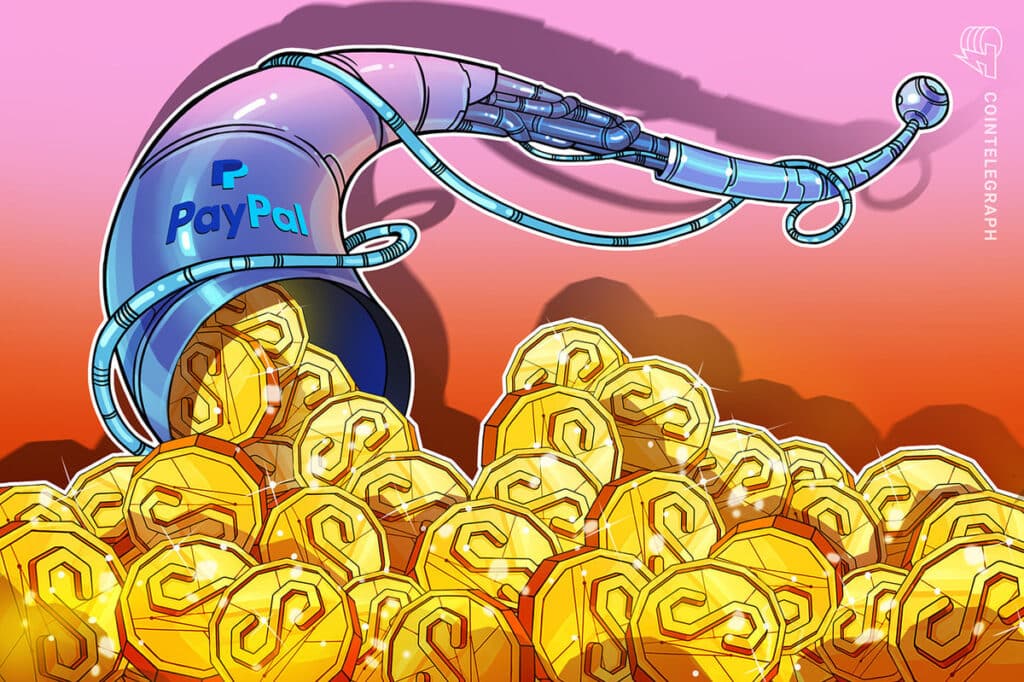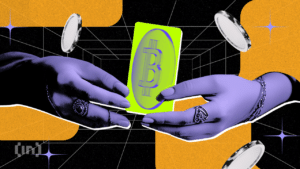PayPal’s Stable Coin Impact on Markets

The introduction of PayPal's native stablecoin, PayPal USD (PYUSD), has sparked a heated debate in the crypto industry regarding volatility in payments and wider crypto adoption.
While this move appears to be a big leap for the adoption of cryptocurrencies in mainstream finance, some industry observers advise caution. They outline the barriers and limitations that could delay widespread adoption.
What is PYUSD?
This initiative aims to bridge the fiat and digital currency realms for consumers, merchants and developers. PayPal CEO Dan Schulman highlighted the importance of a stable digital-fiat transition. PYUSD facilitates a variety of transactions including payments, money transfers between PayPal and compatible external wallets, and crypto conversions:
“The transition to digital currencies requires a stable instrument that is digitally native and easily linked to a fiat currency like the US dollar. Our commitment to responsible innovation and compliance, and our experience in delivering new experiences to our customers, provide the necessary foundation to contribute to the growth of digital payments through PayPal USD.”
The coin is designed to ease payment disputes in virtual environments, speed up value transfers, and simplify digital asset participation by being a safer alternative to the volatile nature of most cryptocurrencies.
PYUSD, an ERC-20 token on the Ethereum blockchain, is intended for compatibility with major exchanges, wallets and Web3 applications, with plans to extend its availability to Venmo.
While the coin is a step in bridging the gap between the traditional and digital financial ecosystems, it remains to be seen whether PYUSD will be widely adopted by PayPal's vast user base in 200 markets.
Regulatory oversight of PYUSD is provided by the New York State Department of Financial Services, Paxos is set to issue a monthly reserve report and publish third-party reserve asset values beginning in September 2023, promoting transparency.
In addition to PUSD, PayPal continues to focus on increasing digital currency education and awareness among consumers and merchants by complementing services that allow customers to trade in select cryptocurrencies.
Impact on the industry
“The launch of PYUSD really marks the largest payments company embracing blockchain technology in a way that creates a new level and a new level of usability within the product itself,” Walter Hessert commented on the American Banker podcast. Hessert is Head of Strategy at Paxos, a global blockchain infrastructure company.
“When PayPay gets into the space and releases a stablecoin, they say to other payment companies and to their tens of millions of merchants around the world, to the hundreds of millions of consumers who have their app, that stablecoin is a real product,” he added.
PYUSD's launch sends a message: Stablecoins are in the mainstream and extend the benefits of blockchain to everyday transactions.
Hessert's position relies on PayPal as a spark for wider crypto adoption. Digital assets often reside in self-contained systems, protected by regulatory frameworks. In this light, the arrival of a stable coin that serves as a bridge between old and digital money has a strong attraction.
Magazine: Real AI and crypto use cases, Issue 4: Fight AI lies with blockchain
Others are attracted to the possibility of PayPal's stablecoin being available on multiple systems, believing it will lead to the introduction of more use cases.
VUCA Digital CEO Pan Loratout told Cointelegraph, “If PayPal's stablecoin integrates into cross-ecosystems, exchanges and wallets, it will increase the use of multiple digital assets, tokens and cryptocurrencies and make it a financial leader that connects many users to the crypto world.”
Having stablecoins that can be easily traded, transferred and converted to other cryptocurrencies or fiat will make them more versatile and welcoming to crypto-natives and new users alike, she says.
However, Lorraine is not aware of the associated risks. Although stablecoins and cryptocurrencies remain a small part of the financial system, there is a growing need to regulate stablecoins if they become large and pose a systemic risk to the economy, he said.
But she added that PayPal's entry into the crypto arena could act as a catalyst for a crypto-led payment system, and bode well for wider use of the crypto market, despite long-term regulatory and compliance challenges.
Some believe that PayPal's entry into the stablecoin space could open the door for other fintech companies to follow suit. PayPal's move could set the stage for a proactive corporate approach to Web 3 innovation.
Others, like Twitter crypto influencer The Wolf Of Crypto Streets, are more controversial.
I think I'm the only one not excited about the PayPal stablecoin launch
I don't want these restrictive and institutional payment systems to dominate crypto and web3.
One of the reasons I'm in the crypto space in the first place is to escape them.
— The Wolf Of Crypto Streets (@W0LF0FCRYPT0) August 7, 2023
Not long after the stablecoin's launch, regulators warned banks to stop doing business with PayPal, dampening the clamor. US regulators have recently filed several lawsuits against tech businesses promoting cryptocurrencies.
Regulation and compliance challenges
PayPal's entry into this world is like a double-edged sword. On the one hand, it could act as a spark for a crypto payment system and help more people use digital assets. On the other hand, PayPal's size and volatility may attract stronger regulatory attention, leading to stricter inspection and regulation needs.
Regulators are already at war. Maxine Waters, the top Democrat on the House Financial Services Committee, expressed concern about PayPal launching its own stablecoin.
Maxine, shortly after the release of statscoin, “PayPayPayPayPayPalPayPayPayPayPayPayPayPayPayPayPayPAL” is very concerned about the lack of a federal framework for monitoring, control and support of these assets.
A strong regulatory focus could stifle new ideas and take away the crypto market's sympathy for those who enjoy its freedom and largely unregulated nature.
DeFi's ability to serve the unbanked
According to the World Bank, around 1.7 billion people around the world do not have a bank account and thus miss out on key financial services. This lockout from the traditional banking system hurts their ability to participate in the global financial game.
By providing credit, savings and investment opportunities, DeFi can empower the unbanked and unbanked population to access cryptocurrencies and thus the global financial system.
While much has been written about how DeFi will change the fate of many unbanked countries, it still remains an unfulfilled dream. Several bottlenecks remain, with regulatory issues at the top of the list.
But if regulations become more aligned with modern thinking and DeFi becomes more accepted, could PayPal's stablecoin leverage PayPal's familiarity to facilitate the transition from conventional to DeFi?
As it stands, PYUSD has strong decentralized roots and hasn't made the jump to DeFi. While there is still an opportunity to enter a more open and decentralized platform, for now, it seems too silly to entertain.
Latest: Trust is the best strategy in the crypto bear market – CEO of Trust Wallet
The crypto community wrestles with the pros and cons of PayPal's potential stablecoin.
While it may bridge the gap between old finance and digital assets, real concerns about staying with Web2 systems remain, including the lack of access to banks and those without regulatory oversight.
There is also the issue of adoption. CoinMarketCap ticker indicates that it has a rank of 242 at the time of writing. While the token has 4,452 watchlists, there are still concerns about it, raising several flags.
It shows that PYUSD still has a long way to go to make it a household name in the blockchain arena. Until then, only speculations can be made as to how much impact it may have on the financial ecosystem.














